On the occasion of Nakba Day, May 15 (an annual day of commemoration of the displacement that preceded and followed the Israeli Declaration of Independence in 1948), Mehr news conducted an interview with Iranian expert on West Asian Affairs and Secretary of the Political Commission of Society for the Defence of Palestinian Nation Ahmadreza Rouhollahzad to shed light on political, economic and social status quo of the regime in Tel Aviv 72 years after its formation in occupied lands.
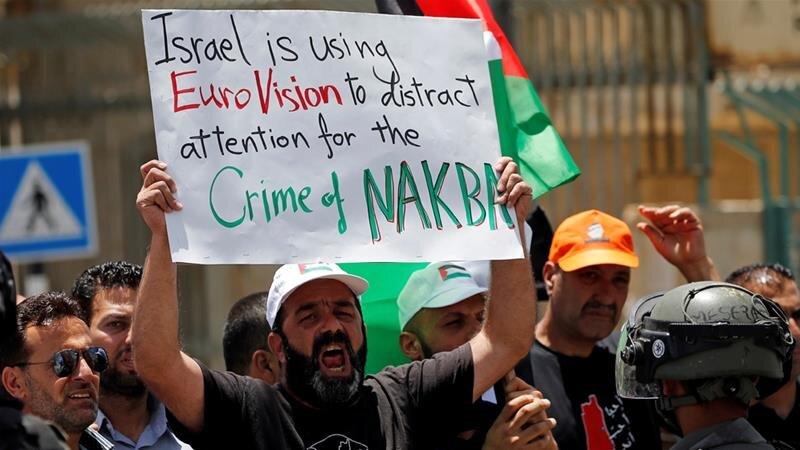
The expert's views on various aspects of the Zionist regime's conditions follows:
Tel Aviv regime’s supporting pillars
The Zionist regime has been established based on some factors: First of all, it relies on world arrogant powers. It was primarily dependent on Britain and now it is backed by the US, while it also has other world powers’ protection. Second, it relies on its military power as a means to reach its occupying policies. Third, it relies on media and news networks to shield it. The other factor is the regime’s economic power and having access to financial resources, which made Zionists to take advantage of various banks and companies all across the globe. Population is another important factor for the regime, which can guarantee its existence.
The named factors can give us a vivid overview of the current political, economic, and social conditions of the 72-year-old Israeli regime and its future.
Zionist regime now against US interests
Considering the protection of world powers from the regime in Tel Aviv, we can see that the all-out protection for the Zionist regime does not exist as before because the world powers are faced with some problems including financial ones. The Israeli regime is now dealing with different challenges both regionally and internationally. The Zionist regime was basically founded to guarantee the colonizing targets of the world powers but under the present circumstances, the lobbies protecting the regime are not united as they were used to be. As some American lobbies have asserted, despite the fact that the regime was founded to meet the demands of the US, it is now forcing Americans to dispatch military forces to protect it and the issue put the US interests at a big risk. In better words, the Zionist regime’s radicalistic measures have made the US be faced big problems in the region. This made the US to think of pulling out its forces from the region, to find a better chance for playing its desired role in the Middle East. The same story repeats itself in the relation between the Zionist regime and some European countries.
Deterrence power of Resistance Axis pushing back Zionists
As mentioned, the Zionist regime’s military power comes as significant. However, the efforts of the Resistance Axis, which was formed after the Islamic Revolution of Iran by Iran, have endangered Israelis’ favored targets. The occupying regime had once the military power to make several countries kneel down but as of 2006, the Resistance Axis has been successful to curb the military might of the Zionists, who are equipped with modern weaponry under the protection of western powers. The regime was fully grounded in several wars with the Resistance Axis in 2006, 2008, and 2014. The axis is now at a high level of deterrence power, in a way that Zionist can only hold one-day or two-day wars against it and is not powerful enough for longer confrontations.
Zionists regime’s parasitic life at risk
The world is coping with an economic recession, including the world powers. The fact has negatively influenced the Zionist regime, too, which is living a parasitic life. It is faced with some difficulties in supplying its financial resources.
While China comes with the biggest economic growth, the main supporter of the Zionist regime i.e. the US is dealing with major economic difficulties. Therefore, the economic conditions in the occupied lands are hurt as well. The regime has been faced with protests against the economic status quo, domestically, in recent years.
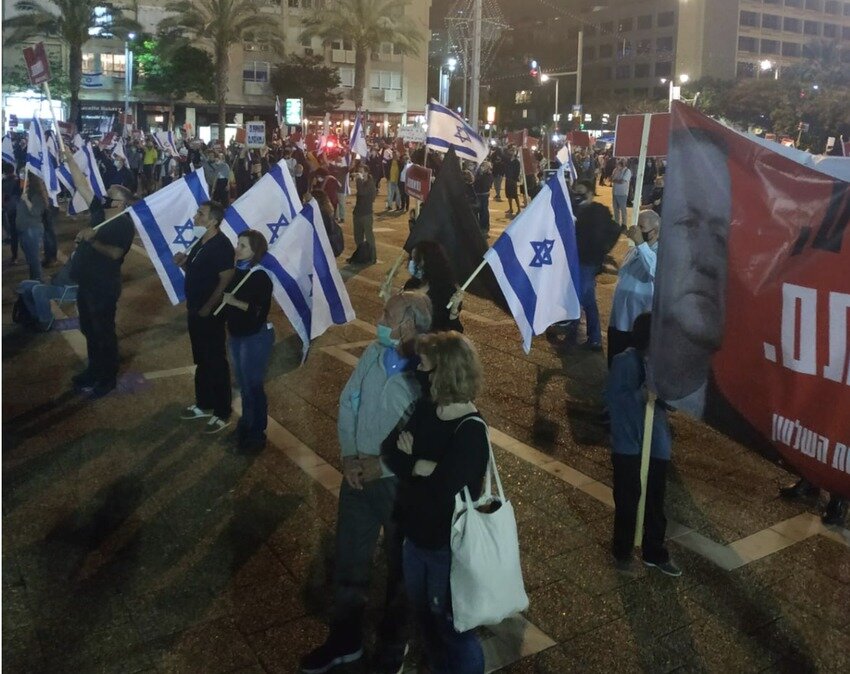
Western public opinion against Israeli regime
Regarding the control of the Zionist regime on media and its desired influence on public opinion, it is worth noting that thanks to the formation of independent news networks and channels besides the appearance of social media, the regime has lost its exclusive tribune. Public opinion has now the chance to listen to and be informed by non-Zionist sources. For instance, public opinion in western societies which felt sympathy with Zionists over the holocaust was totally against the regime during the 22-day war in Gaza. Western public opinion, accordingly, concluded that the Zionist regime is not a victim of a massacre titled holocaust but it is by itself a criminal who performs mass genocide.
The Boycott, Divestment, and Sanctions movement (also known as BDS), a campaign promoting various forms of boycott against the Israeli regime, is a good example of anti-Zionist approaches across the world.
‘Depopulation’ a big challenge for the Israeli regime
As discussed, the Zionist regime has applied ‘settler colonialism’ policy, which includes the replacement of indigenous populations with an invasive settler society that, over time, develops a distinctive identity and sovereignty. In past years, the regime sought to attract people from across the globe into its illegal territory to guarantee its existence. Any threat against the Zionist population number, accordingly, is considered a threat to its existence. Based on the figures provided by the Tel Aviv regime, its population currently is a bit more than eight million, of which 2.5 million are Palestinians with Israeli identity certificates, who are regarded as residents, not citizens. 1.25 million of the population are the Jews who used to live in Palestine but migrated countries such as the US, the UK, Poland and etc. They are, however, counted as Israelis in official statistics although they do not live inside the regime’s territory. In addition, the number of applicants for living in the occupied lands is also dropping.
Therefore, the population is declining and this is a big challenge for the regime.
Unfair distribution of wealth in a nonhomogeneous population ignites dissatisfaction in occupied lands
The regime in Tel Aviv is ruling a nonhomogeneous population, i.e. members have different origins and cultures. However, the distribution of wealth and power among those living in occupied lands is not equitable. There have been serval protests and riots in occupied lands, accordingly.
Zionist regime experiencing incremental, endogenous collapse
The regime in Tel Aviv is coping with some endogenous challenges, as well. Coalitions in the regime are dissolved one after another, forming new ones but a large number of these coalitions’ members are not able to gain victory in elections to form a government. As we see, after three rounds of holding elections, there is still no government. The gaps among Zionist society is ever-increasing, the issue can strengthen the probability of the regime’s collapse.
As sociologists in the occupied lands assert, chances for the regime to survive the ongoing conditions are not high and it may collapse within one or two decades.
As experts confirm, the Zionist regime is struggling to pull its self out of the swamp it is entrapped in.
By ‘Deal of Century’ US wants to kill 2 birds with 1 stone
The ‘Deal of Century’ is a Zionist-American plan, designed to finish the job with Palestine. Regarding the growing economic power of China and India besides those of the BRICS or the EU, American think-tanks have advised the government to put an end into the Middle-East case. The US military presence in the Middle East reduces its chance against economic powers. Therefore, the US hegemony and its unilateralism approaches in the world are under a dire threat, and to protect itself, the country needs to reinforce its economic power and increase the costs for its rivals.
One of the cases that the US has spent a lot on is the Middle East, in which Americans have counted on the Zionist regime. To put an end to this file, the US presented the Deal of Century, which seeks the eradication of Palestine and the Palestinian identity.
The deal includes a new wave of immigration and will bring a huge number of refugees. It can be translated into a ‘new type of population displacement’. The deal urges a group of displaced Palestinians to settle down in Soma, under the control of Egypt. Another group must be accommodated in Jordan. The deal also bans the return of Palestinian refugees, living in other countries, to their homeland.
In better words, being implemented, the ‘Deal of Century’ will leave no country for Palestinians and in result, will break the Resistance Axis; The US will kill two birds by one stone!
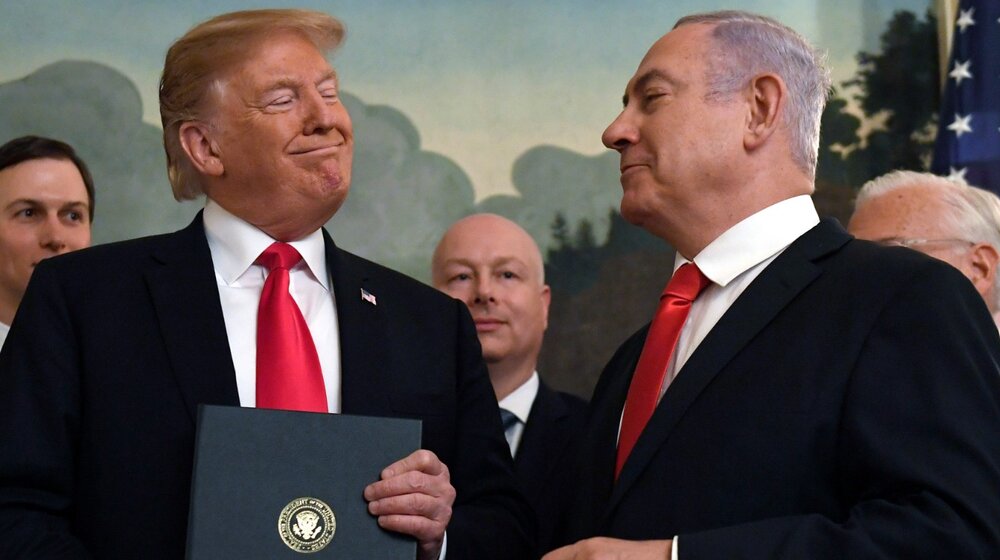
‘Deal of Century’ doomed to failure
The US plans to pull out its forces from the Middle East but before that it needs to form parallel power, with the Zionist regime as the pivotal point. The Resistance Axis and the Islamic Revolution of Iran are, however, the major obstacles on the way of the US and its Arab allies who seek to carry out conspiracy plots against regional countries.
In general, the capacities and capabilities of the Resistance Axis in the region and the challenges that the US and Tel Aviv regime are dealing with do not allow the Deal of Century to hit its set targets. There are some concerns for the US about the implementation of its proposed plan, among which that can be referred is the Zionist regime’s inability in forming a government in the occupied lands.
The integrated Resistance Axis is now influential enough with an acceptable level of deterrence power in the region not to let the US to make the deal operation. The Zionist regime cannot impose wars against the axis and it is fully aware that any attack will be responded harshly. Lebanese Hezbollah has become an obsession for the Zionist regime, which is much stronger than in 2006.
Also, comes the Islamic Republic of Iran, which proved its might and authority targeting a US airbase in Iraq a few months ago after the martyrdom of Lit. Gen. Qasem Soleimani and is deterring any foreign aggression in the Persian Gulf. Yemen has also improved into a new resistance axis. Syria is stepping out of a 10-year-old internal war, while Iraq is striving to establish an independent government. Tehran-Beirut road is being formed gradually.
For sure, the mighty Resistance Axis will not allow the US to reach its desired goals.
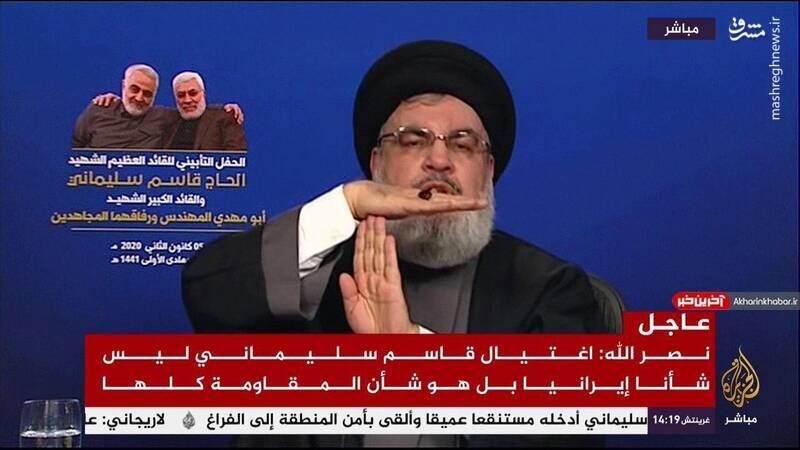


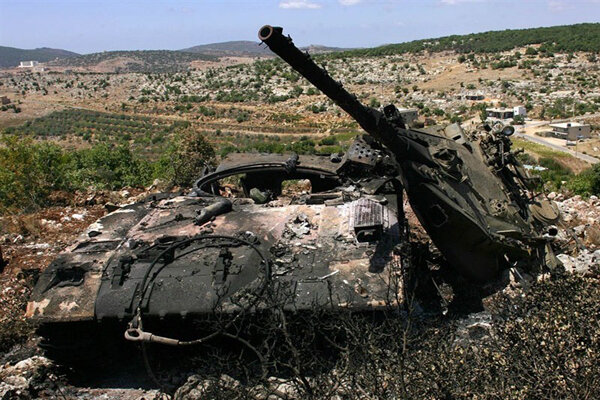






















Your Comment